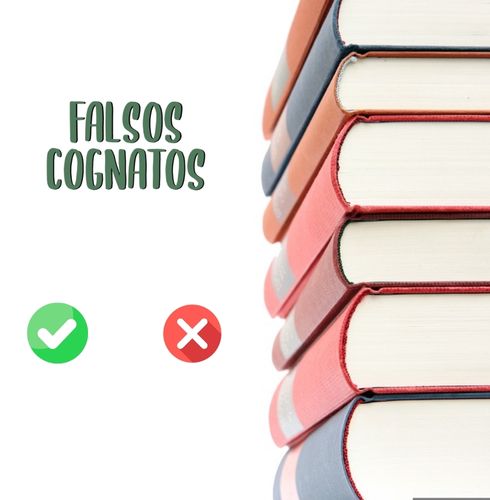Veja o conteúdo que elaboramos para você. Queremos inspirar bons insights.

11. Esperto x Expert.
Em inglês, um expert é uma pessoa que possui habilidades ou conhecimentos especiais. Exemplo: “Members of the Delphi panel were experts in the area of diagnostic research.” Se você quiser usar a palavra esperto, deve-se usar clever ou smart. Exemplo: “Other itinerant oculists were clever in the treatment of catarrhal conjunctivitis.”
12. Fábrica x Fabric.
Em inglês, fabric significa tecido/pano. Exemplo: “The fabric used was polyester felt with untreated, singed, or PTFE-laminated surface.” Se você quiser dizer fábrica, as palavras mais usadas são plant ou factory. Exemplo: “The plants were located near rivers where plenty of free cold water was available.”
13. Gripe x Grip x Gripe.
Em inglês, grip significa agarrar algo com as mãos firmemente. Exemplo: “Sometimes we had to grip the patients to take control of the situation.” Tem a palavra gripe no inglês também, que significa queixa/ reclamação. Por exemplo: “As usual, the students had some gripes they wanted publicized.” Já no caso da enfermidade infecciosa gripe, o correto são os termos cold (resfriado) ou flu (gripe em si). Por exemplo: “As a matter of fact, the Spanish flu pandemic was much more severe than the coronavirus pandemic in terms of its mortality rate.”
14. Injúria x Injury.
Em inglês, injury é quando um corpo é machucado ou danificado por algo. Por exemplo: “The risk of knee injury increased as people aged.” Se você quiser usar a palavra injúria, deve-se usar insult. Exemplo: “Many were the insults that were hurled at her—but she only smiled in return.”
15. Legenda x Legend.
Em inglês, legend é uma história tradicionalmente contada, cujos os fatos não são verificados. Exemplo: “The continued depictions of Nordic legends are proof that the old religion was not forgotten.” Já o substantivo legenda no português deve ser traduzida para subtitles, neste caso mais usado no plural. Por exemplo: “To date, subtitles have been found to aid comprehension regardless of being interlingual or intralingual.”
16. Livraria x Library.
Usamos library em inglês para descrever um espaço, geralmente gerenciado por órgão público ou universidade, onde livros podem ser emprestados por tempos curtos sem cobrança alguma (em português, usa-se a palavra biblioteca). Por exemplo: “In May, 1957 over 4500 books were borrowed from the farm library alone.” No caso de livraria, usa-se bookstore. Por exemplo: “Even some of the country’s most beloved black bookstores have closed their doors.”
17. Lanche x Lunch.
A palavra inglesa lunch é usada para descrever a refeição do meio-dia (almoço em português). Por exemplo: “Lunch was served at 13.00 h.” Para dizer lanche, usa-se snack em inglês. Por exemplo: “They had a snack before the meeting.”
18. Novela x Novel.
Usamos novel como substantivo para descrever livros de ficção e como adjetivo para descrever algo novo ou incomum. Exemplo: “This was a great novel written by Jen Waite.” ou “This is a novel method used in medicine.” Para dizer novela, usa-se soap opera. “Brazilian soap operas are renowned for their calculated drama and tension.”
19. Parentes x Parents.
Em inglês, parents é usado para se referir ao pai e a mãe, ou seja, os pais ou progenitores. Exemplo: “My parents live in St. Louis.” Parentes são descritos como relatives em inglês. Por exemplo: “All my relatives came from America.”
20. Particular x Particular.
Exatamente a mesma palavra, dois significados! Em inglês, usamos para falar sobre uma parte muito específica de um grupo. Exemplo: “It is a traditional story of a particular group of people.” Se você quiser dizer particular com o significado em português, use personal (Pessoal) ou private (privado). Por exemplo: “Our boss has his own private beach.”
Caso você perdeu a primeira parte é só clicar aqui!